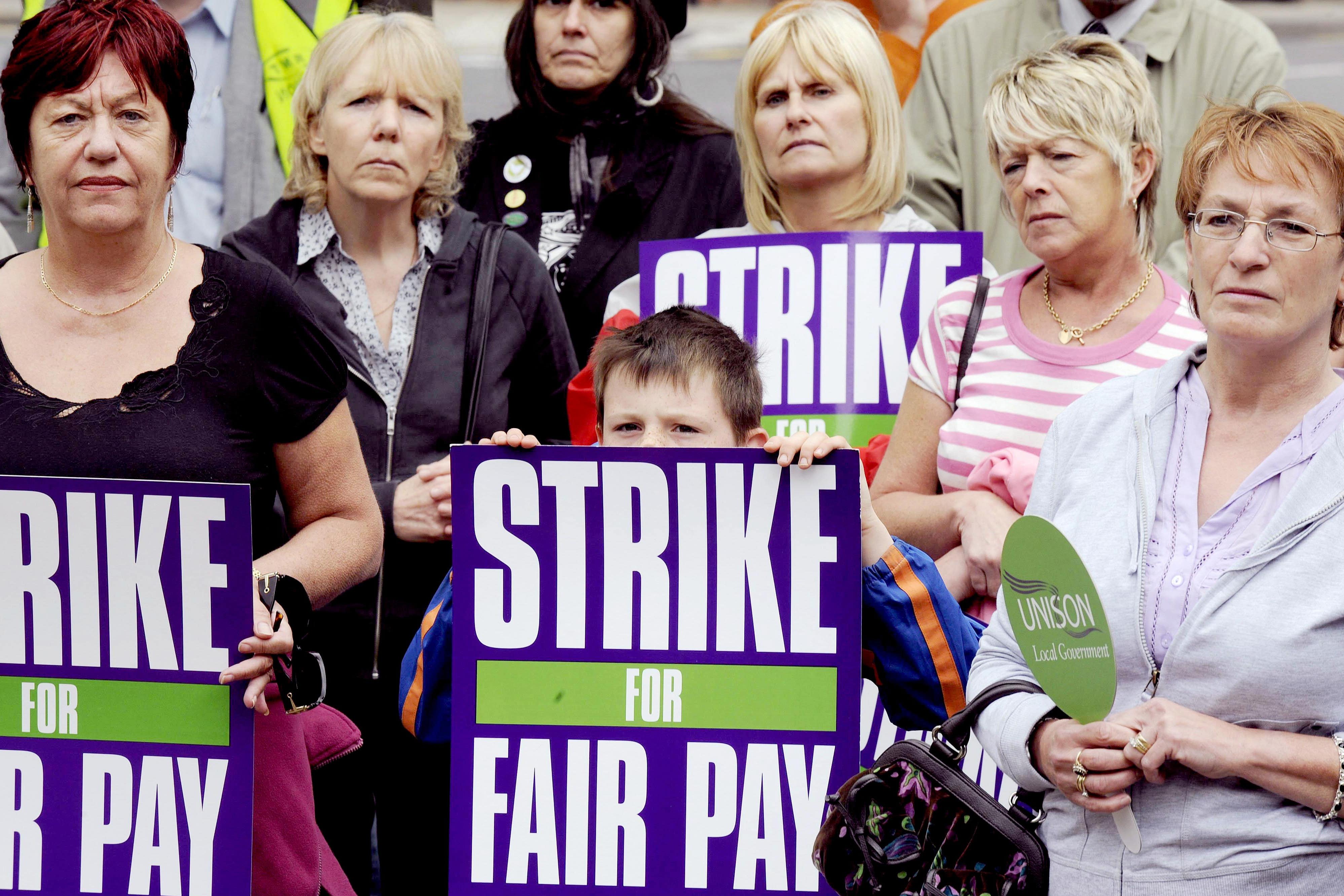Labour promises to battle anti-strike legislation “every step of the way”
Sir Keir Starmer called on Rishi Sunak to “stop grandstanding” and get around the negotiating table with public sector unions.

Your support helps us to tell the story
From reproductive rights to climate change to Big Tech, The Independent is on the ground when the story is developing. Whether it's investigating the financials of Elon Musk's pro-Trump PAC or producing our latest documentary, 'The A Word', which shines a light on the American women fighting for reproductive rights, we know how important it is to parse out the facts from the messaging.
At such a critical moment in US history, we need reporters on the ground. Your donation allows us to keep sending journalists to speak to both sides of the story.
The Independent is trusted by Americans across the entire political spectrum. And unlike many other quality news outlets, we choose not to lock Americans out of our reporting and analysis with paywalls. We believe quality journalism should be available to everyone, paid for by those who can afford it.
Your support makes all the difference.Labour will fight anti-strike legislation “every step of the way” and accused the Government of failing to treat key public workers with respect.
Sir Keir Starmer called on Rishi Sunak to “stop grandstanding” and get around the negotiating table with public sector unions, while shadow chancellor Rachel Reeves accused the Government of throwing key workers “out in the cold”.
But she refused to set out what kind of pay deal nurses and ambulance staff would be offered under Labour, saying she would not “pluck numbers out of the air”.
At a Labour conference for business chiefs, party leader Sir Keir said Mr Sunak’s administration should “stop grandstanding and start governing” by getting around the table with unions.
“I don’t want strikes and disruption,” he said.
“I don’t think those going on strike want strikes and disruption. They are facing a very real cost of living crisis, they are struggling to pay their bills.”
The Government has already set out plans for new laws to ensure minimum service levels on the transport network during strikes and is reported to be considering even tougher measures extending to emergency services workers to restrict their ability to strike.
Ms Reeves said the Government had only itself to blame for the chaos and said Labour would vigorously oppose the minimum service level legislation.
“The reason that we didn’t have strikes under the last Labour government like this is because the last Labour government treated key workers with respect and got around the negotiating table, this government has been sitting on its hands for five months, people have got no one to blame but the Government for this industrial action,” she said.
“And even at this late stage, the Government needs to be doing more to avert the further industrial action on the railways but also the industrial action that is now going to be taking place in our hospitals – in the case of the RCN (Royal College of Nursing) the first ever industrial action in their history.”
But pressed on what kind of pay deal they could expect if she was in 11 Downing Street, Ms Reeves said: “I’ve always said Labour will not pluck numbers out of the air, everything in our manifesto will be fully costed and fully funded.”
I've always said Labour will not pluck numbers out of the air, everything in our manifesto will be fully costed and fully funded
In response to the threat of anti-strike legislation, she told reporters: “We will fight it every step of the way. (Transport Secretary) Mark Harper said yesterday that such legislation wouldn’t deal with either the root cause of the problem or stop any of the industrial action this year.
“This is just grandstanding. Instead of putting more legislation on the statute books, the Government should be working with the key workers in these crucial public services.”
She rejected the suggestion that Labour’s approach – which would see the party repeal the 2016 Trade Union Act, potentially making it easier for unions to ballot on strike action – would lead to more industrial action,.
“Any government would be hard pressed to create any more chaos than what you’re getting under the Conservatives today,” she said.
“The reason we’ve got chaos under the Conservatives is they’re unwilling to sit down and work with our key workers.
“They’ve thrown them out into the cold. They got us through the pandemic, and now this government is treating them with a total lack of respect.
“What is needed is dialogue to resolve these disputes. And what is also needed is growth in the economy.”
She said that 12 years of Conservative-led government had seen “economic growth on the floor” meaning it was “very difficult to find the money to invest in public services and improve living standards”.
“That’s why our priority is growth, to grow the economy so we’ve got money to do the things in government that we want to do.”
She said that even without the strikes, the Tory government had presided over a decline in basic services.
“The truth is that chaos is not just on strike days, it’s on every day of the week, because under this Tory government, nothing is working.
“You can’t get a hospital operation. You can’t get a doctor’s appointment. You can’t get on a train because they’re cancelled or delayed. You can’t get a passport. You can’t get a driving licence.
“That’s not because of legislation about strikes. That’s because of the failure of the Conservative government.”